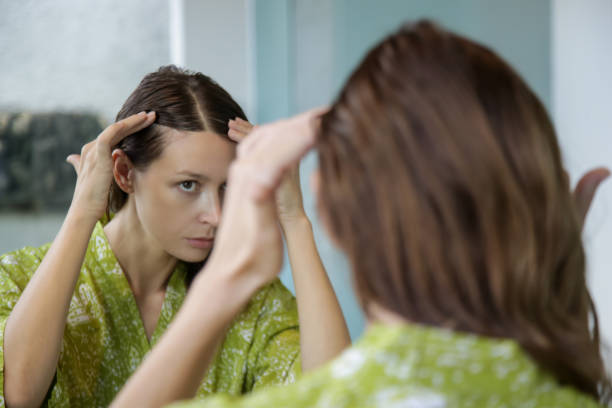vaginal itching | causes of vaginal itching | symtoms of vaginal itching | how to stop vaginal itching |best vaginal itching creams | vaginal itching home remedies |itchy vaginal lips | itching after sex
Topics Covered:
1.What is Vaginal Itching?
2.Causes of Vaginal Itching
3.Symptoms of Vaginal Itching
4.How to stop vaginal itching?
5.Why my Vagina hurts after sex?
6.Best Vaginal Itching Creams
7.Why does my Vagina Itch after Sex?
8.Home Remedies for Vaginal Itching:
1.What is Vaginal Itching?
Vaginal itching is a common and uncomfortable symptom that affects many women at some point in their lives. It refers to an itchiness or irritation in and around the vagina and vulva area.
2.Causes of Vaginal Itching:
There can be several causes of vaginal itching, including:
Yeast infection: A common cause of vaginal itching is a yeast infection, which occurs when there is an overgrowth of the fungus Candida in the vagina.
Bacterial vaginosis: Another common cause of vaginal itching is bacterial vaginosis, which occurs when there is an imbalance in the bacteria in the vagina.
Sexually transmitted infections: Certain sexually transmitted infections (STIs), such as chlamydia, gonorrhea, and trichomoniasis, can cause vaginal itching.
Menopause: Hormonal changes during menopause can also cause vaginal dryness and itching.
Allergic reactions: Some women may develop an allergic reaction to certain soaps, detergents, or fabrics, which can cause itching.
3.Symptoms of vaginal itching can include:
*Itching in and around the vagina and vulva area.
*Burning sensation during urination.
*Redness and swelling of the vulva.
*Abnormal discharge from the vagina.
*Pain during sex.
It is important to see a healthcare provider if you experience persistent vaginal itching, as some causes may require medical treatment.
4.How to stop vaginal itching?
The treatment for vaginal itching depends on the underlying cause. Here are some general tips that may help alleviate vaginal itching:
Keep the area clean and dry: Wash the genital area with mild soap and warm water, and dry thoroughly.
Avoid irritants: Avoid using scented soaps, bubble baths, and other products that may irritate the genital area.
Wear loose clothing: Avoid tight-fitting clothing, especially in the genital area, and wear cotton underwear to allow air to circulate.
Use a cold compress: Applying a cold compress or ice pack to the area can help reduce itching and inflammation.
Over-the-counter treatments: Over-the-counter antifungal creams or vaginal moisturizers may provide relief for some types of vaginal itching. However, it's important to talk to a healthcare provider before using any over-the-counter treatments.
If the vaginal itching persists or is accompanied by other symptoms such as abnormal discharge or pain, it's important to see a healthcare provider for a proper diagnosis and treatment.
5.Why does my Vagina Itch after Sex?
Here can be several reasons why you may experience vaginal itching after sex. Some possible causes include:
Allergic reaction: You may be allergic to condoms, lubricants, or other products used during sex, which can cause vaginal itching.
Irritation: Friction during sex or using rough objects during sex can cause irritation in the vaginal area, which can lead to itching.
Infection: Sexually transmitted infections (STIs) such as chlamydia, gonorrhea, and trichomoniasis can cause vaginal itching after sex.
Yeast infection: Sexual activity can disrupt the normal balance of bacteria and yeast in the vagina, which can lead to a yeast infection and cause itching.
Vaginal dryness: If you experience vaginal dryness during sex, it can cause itching and discomfort.
6.Best Vaginal Itching Creams:
There are some common ingredients found in over-the-counter vaginal itching creams:
Clotrimazole: An antifungal medication used to treat yeast infections.
Miconazole: An antifungal medication used to treat yeast infections.
Hydrocortisone: A steroid medication used to reduce inflammation and itching.
Lidocaine: A topical anesthetic that can provide temporary relief from itching and pain.
Benzocaine: A topical anesthetic that can provide temporary relief from itching and pain.
It's important to talk to a healthcare provider before using any over-the-counter vaginal itching creams, as they may not be appropriate for all types of vaginal itching. Some vaginal itching may require prescription medication or other forms of treatment.
7.What causes my vulvar itching for months?
If vulvar itching persists for months, it could be due to a chronic condition or an underlying medical issue. Here are some potential causes of chronic vulvar itching:
Lichen sclerosis: Lichen sclerosis is a skin condition that can cause itching, burning, and white patches on the vulva. It is more common in postmenopausal women, but can occur in women of all ages.
Psoriasis: Psoriasis is a chronic skin condition that can cause red, scaly patches on the skin, including the vulva.
Eczema: Eczema is a chronic skin condition that can cause itching, redness, and inflammation on the skin, including the vulva.
Contact dermatitis: Contact dermatitis occurs when the skin comes into contact with an irritant, such as certain soaps, detergents, or fabrics, which can cause itching and irritation.
Vulvar cancer: Although rare, vulvar cancer can cause itching, burning, and other symptoms.
8.Home Remedies for Vaginal Itching:
Here are some home remedies that may help alleviate vaginal itching:
Apple cider vinegar: Mix a few tablespoons of apple cider vinegar with warm water and use it to wash the genital area.
Coconut oil: Apply coconut oil to the genital area to moisturize and soothe itching.
Tea tree oil: Mix a few drops of tea tree oil with a carrier oil, such as coconut oil or olive oil, and apply it to the genital area.
Yogurt: Eating yogurt or applying it topically to the genital area can help restore the natural balance of bacteria in the vagina.
Cold compress: Applying a cold compress or ice pack to the area can help reduce itching and inflammation.
However, it's important to note that these remedies may not be effective for all types of vaginal itching, and they should not be used as a substitute for proper medical care. If the vaginal itching persists or is accompanied by other symptoms, it's important to see a healthcare provider for a proper diagnosis and treatment.











0 Comments